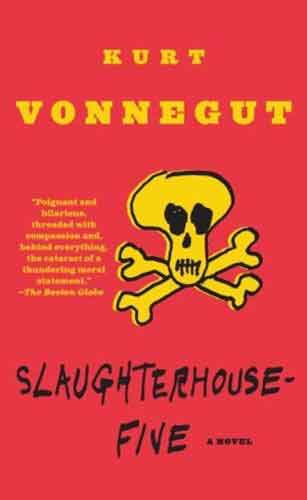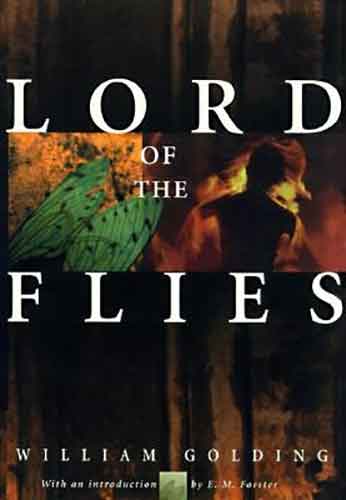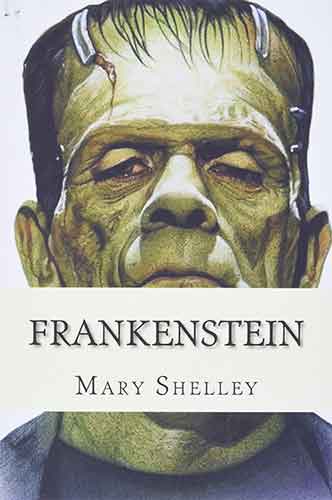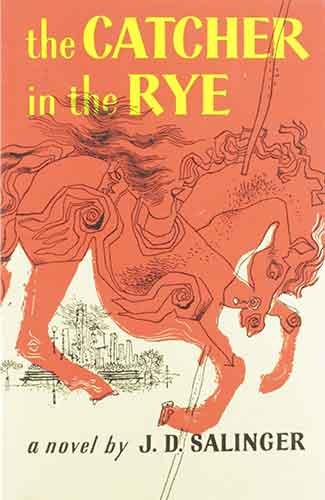When I was younger, required reading seemed so silly.
No, it’s not because I didn’t like reading. I definitely had my nose in plenty of books. I read and re-read Anne Rice’s Vampire Chronicles series more times than I’d care to admit, among plenty of other fantasy and sci-fi books.
However, as soon as a teacher stood in front of a class and announced that everyone had to read Fahrenheit 451, my mind went elsewhere. I had no interest in a book about a fireman burning books, or the “seventeen and crazy” Clarisse who likes to talk. Which, looking back now, was so silly. I’m a big fan of sci-fi! But you know how it goes when a teacher tells you that you have to do something… I just wanted to read my own books.
Anyway, I came back to that book years later as a young adult. Since then, I’ve read it several times now, and I’d dare to call it one of my favorites. In fact, when I can’t decide what to read, I reach for this familiar classic.
Sure, I learned from that book. But revisiting it as an adult when it was no longer required, I realized that I had missed out on a lot. The required reading books are classics for a reason, and back in high school, I was maybe too young to fully appreciate them. There was a wealth of knowledge that went right over my head.
That’s when I started revisiting all those required reading books. And while some of those books from high school may have seemed old and irrelevant at the time, there’s so much to appreciate as an adult.
So, check it out (that’s a little library humor for you there). Here are 15 books that you should give another go.
Slaughterhouse-Five by Kurt Vonnegut

As one of my now-favorites, I’m ashamed to admit I didn’t even read this all the way through in high school. As an adult, I read it in a single day because I couldn’t put it down. And if that stark difference doesn’t give you enough motivation to read some of these books again, I don’t know what will! Told in a non-linear order through flashbacks and descriptions of time travel experiences, it follows Billy Pilgrim, a soldier who becomes “unstuck in time.” It is an antiwar novel, examining the destructiveness of war, the illusion of free will, and the inevitability of death. So it goes.
Animal Farm by George Orwell
On the surface, this novel is about a group of farm animals rebelling against their human farmer to create a society of equality and freedom. Read this book as an adult, though, and you’ll clearly see that it’s about more than just talking farm animals. Orwell was a critic of Joseph Stalin, and the book serves as a satirical allegory of Soviet-era communism. You’ll discover it’s really an analysis of how power breeds corruption.
The Great Gatsby by F. Scott Fitzgerald
The glittery wealth, a mysterious party boy, and tumultuous love in the Roaring ‘20s is intriguing to high school kids, sure. Revisiting the book and meeting Gatsby as an adult gives a much different picture – one of frivolity, misguided ambitions, triumph, and tragedy. There’s a tinge of disillusionment with the American dream and a glaring sense of class permanence.
Catch-22 by Joseph Heller
Catch-22 examines the absurdity of war and military life, as it follows a group of soldiers during the second half of World War II. In high school, Joseph Heller’s satire made for an odd and kind of funny read, so perhaps you missed the point: that there’s nothing funny about the brutality of war. Major Major Major Major is still funny, but as an adult, you’ll appreciate and actually understand Heller’s satire way more.
Fahrenheit 451 by Ray Bradbury
451 degrees Fahrenheit is the temperature at which paper burns, in a future where the printed book is illegal for its ability to “corrupt” the mind. Guy Montag is a fireman whose job is to destroy books and the homes in which they are hidden, but he begins to question everything he has ever known after he meets an eccentric young neighbor. It serves as an eerie warning of what we must work to avoid.
Lord of the Flies by William Golding

When a plane is shot down, a group of British boys find themselves stranded on an uninhabited island. Although attempting to survive without rules or adults, they quickly turn against each other. There is tension between rational and emotional reactions, and between individuality versus groupthink. Come back and read it as an adult, and it’ll serve as a reminder of innate human selfishness and impulsiveness as the boys regress to a primitive state.
Nineteen Eighty-Four by George Orwell
This novel by George Orwell was first published back in 1949. And while the year 1984 has come and gone, this story still remains as relevant as ever, covering the role of truth and facts within politics – and the ways in which they are manipulated. In this dystopian future, government lies and propaganda rules, which eerily doesn’t seem impossible. Totalitarianism, government surveillance, and perpetual war, anyone?
Anne Frank: The Diary of a Young Girl by Anne Frank
Reading the firsthand accounts of those who suffered during the Holocaust becomes increasingly important, as the number of living survivors dwindles over the years. And that’s what this is, a real-life account of Anne and her family, who lost their lives to hatred and anti-Semitism. Though the subject likely struck you like a ton of bricks in high school, it hits on a different level as an adult.
To Kill a Mockingbird by Harper Lee
I remember reading To Kill a Mockingbird, and we even went and saw a play based on the novel. It was easy to see that standing up for what’s right is not easy, but always necessary. Even still, I didn’t fully understand the book the same way then as I do now, as an adult. The book also addresses the loss of innocence, issues of class and race in the rural south, and compassion.
Death of a Salesman by Arthur Miller
Understanding a character like Willy Loman may be difficult when you’re 16. He is unstable, insecure, and self-deluded at 63, cheating on his wife and lying to his kids. But rereading the play as an adult, you’ll likely relate a little more to Willy’s daily struggles, his disillusionment with the American dream, and how his failed dreams are what’s behind his flaws.
Frankenstein by Mary Shelley

Frankenstein is a classic horror novel written by Mary Shelley, all the way back in 1818. Although the book may hold the interest of high school kids thanks to Victor Frankenstein and his monster creation, it’s likely that some of the bigger themes go right over a kid’s head. It gives a grim look at crossing boundaries, man versus nature, the human desire for connection, and the merciless pursuit of knowledge.
Wuthering Heights by Emily Bronte
Wuthering Heights is kind of a snore-fest when you’re in high school. It’s just a tragic love story between the beautiful Catherine and the handsome Heathcliff, right? As an adult, it’s easy to understand it’s not a simple love story, but rather what happens when love becomes manipulative and cruel.
The Hitchhiker’s Guide to the Galaxy by Douglas Adams
The Hitchhiker’s Guide to the Galaxy is a fun science fiction novel and was definitely one of the more appreciated required readings of high school. Even still, a lot of the themes in this book likely go right over students’ heads, who are more involved with giving “42” as an answer to everything after reading the book. Read it again to catch analysis of finding significance and meaning of life; power and control; and improbability, impossibility, coincidence, and absurdity.
Night by Elie Wiesel
Night is on this list, for many of the same reasons why Anne Frank is on here. When Holocaust survivors are no longer with us, their stories will live on through their writings. When Night was required reading in high school, it was a heartbreaking, gripping read for me and other kids. However, as an adult, it is searing. You’ll better understand the complex analysis of family, identity, faith, and human relationships in Wiesel’s deeply poignant account of his survival.
The Catcher in the Rye by JD Salinger

Salinger’s novel is narrated by a teenager named Holden Caulfield, after his discharge from an institution in Southern California. The Catcher in the Rye follows Caulfield’s journey through boarding school and a few wild days sent in New York before he winds up in the institution. It’s often read for themes of angst, alienation, and as a critique on “phonies” in society. Caulfield may be an icon of teenage rebellion of sorts, but re-read this novel as an adult for a dose of perspective. His alienated, angsty, “no one understands me” attitude (which remains unchanged by the novel’s end) looks immature.













